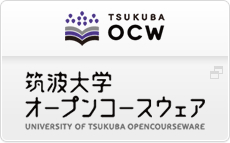about ENEP
Master’s Program in Environmental Sciences and Doctoral Program in Sustainable Environmental Studies in Faculty of Life and Environmental Sciences, University of Tsukuba have offered attractive curriculum and certificate programs corresponding to social needs and academic importance. The certificate programs include Japanese Grant Aid for Human Resource Development Scholarship (JDS), Sustainability Science, Technology and Policy (SUSTEP), and Environmental Diplomatic Leader program (EDL). These courses are designed to foster personnel with scientific expertise, broader perspective, management skills, and practical skills who can tackle various global-scale issues.
Based on the achievements mentioned above, we are pleased to launch a new program <a href=”https://enep.ied.tsukuba.ac.jp/wp-content/uploads/sites/9/2018/01/gakuseiboshu.pdf”>“Expert Program of Environmental Management and Prognosis of Nuclear Emergencies (ENEP)”</a> funded by the Ministry of Education, Culture, Sports, Science and Technology.
Five years have passed since the Fukushima Daiichi Nuclear Power accident and we have gathered of both initial deposition of radionuclides and their subsequent transfer to food. Meanwhile, it is obvious that we are short of human resources with expertise in environmental impact assessment, prognosis, and monitoring for nuclear emergencies. It is an obligation of our country to share lessons learned from the accident with the world, reflect the lessons on the worldwide safety standards, and contribute to the safety of nuclear facilities around the world.
Personnel for environmental assessment, prognosis for nuclear emergencies are required to have not only basic knowledge of nuclear power but also accurate understanding and measurement techniques regarding radionuclide behavior in the natural environment together with hydrological and material cycle process. In addition, needs are increasing in fostering global leaders who have expertise in various fields including environmental monitoring in response to nuclear emergencies, model development of radionuclide transfer prediction in the atmosphere, terrestrial soil surface, and marine environment, and safety assessment for ecosystem, food and drinking water.
Graduate School of Life and environmental Sciences offers Master’s Program in Environmental Sciences and Doctoral Program in Sustainable Environmental Studies.
Together with Center for Research in Isotopes and Environmental Dynamics, our faculty members and researchers can offer comprehensive educational programs centering on isotopes in natural environment. Furthermore, we have collaboration with renowned research institutions both inside and outside Japan including Japan Atomic Energy Agency, National Institute for Environmental Studies, National Institute of Radiological Sciences, National Institute for Agro-Environmental Sciences, Meteorological Research Institute, National Institute of Advanced Industrial Science and Technology, International Atomic Energy Agency (IAEA), and Institut de radioprotection et de sûreté nucléaire (IRSN). These collaborations will enrich our programs to foster world-leading personnel in the fields of environmental impact assessment, modeling, and ecosystem impact assessment in response to nuclear emergencies anticipated in the next generation.
We would like to express sincere respect and gratitude to all of the people concerned for their understandings, efforts and cooperation. We would also like to ask for continued support and encouragement for our program.
Prof. Maki Tsujimura
Professor in Hydrology and Water Environment, Faculty of Life and Environmental Sciences, University of Tsukuba
Advisor to the President, University of Tsukuba
Chair of Doctoral Program in Sustainable Environmental Studies, University of Tsukuba






